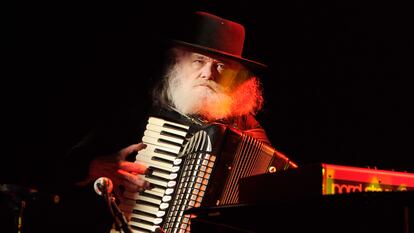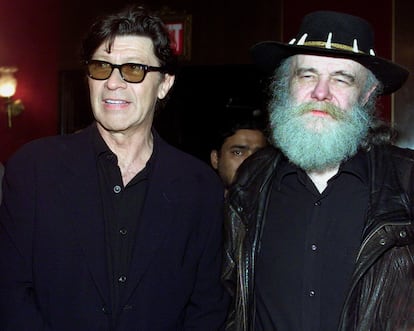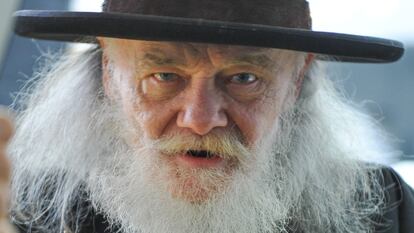Canadian organist Garth Hudson, the most bearded and iconic of the members of The Band, died early this Tuesday morning in a New York medical center at the age of 87. A native of Windson (Ontario), Eric Garth Hudson was the oldest of the “magnificent five” that made up one of the most transcendental groups in the history of rock, and the last to leave forever: his four companions preceded him in transit. of the soul, pianist Richard Manuel (who took his own life in 1986), bassist Rick Danko (disappeared in 1999), drummer Levon Helm (died in 2012) and the charismatic guitarist Robbie Robertson, who died during the summer of 2023.
Hudson was perhaps the most discreet of those five pillars of The Band, especially because he expanded less on composition work and barely developed as a solo artist once the quintet dissolved with the cumbersome recording process of Islands (1977) and his famous farewell concert, The Last Waltzimmortalized with the Martin Scorsese film. But the sound of Hudson’s organ is inseparable from the history of the band, whose members always regarded him as the man with the most solid musical training of the five. In the midst of the creative effervescence of the sixties, when the Hammond B-3 organ was the sound reference for new generation jazz and rock, Hudson opted for the apparently more humble Lowrey and also stood out as an accordionist and even an occasional saxophonist.
His four companions in fatigues, originally baptized as The Hawks and related to the old star of the rockabilly Ronnie Hawkins, they pointed out him as the wise man who marked the distance with any other group on the scene. In fact, Bob Dylan and Rick Danko were inspired by him to write This Wheel’s On Fire (from The Band’s debut, the immeasurable Music From Big Pinkin 1968), a piece with which he was recognized as a great differentiating element. Not in vain, Hudson had enjoyed academic training at the Toronto Conservatory, mastered Bach’s repertoire and paraphrased his Toccata and Fugue in D minor for the introduction of Chest Fevera piece also belonging to Big Pink and that, if we trust the legend, the now disappeared artist interpreted in a different way in each and every one of his public appearances.
Garth Hudson thus became the backbone of The Band both for the quintet in his own name and in his role as Dylan’s accompanying band, an unmatched alliance since the legendary concerts of 1966 (those in which the bard of Duluth was shouted ” Judas!” for embracing the electric faith) to the songwriting sessions in a basement near Woodstock that bore fruit in The Basement Tapes, passing through the monumental joint tour at the beginning of 1974 that in its day took the form of a double LP (Before The Flood) and just a few months ago he reappeared as a record mastodon of ¡27! compact.
In reality, in Hudson’s career the only thing missing is greater first-person exposure: beyond some concerts in 1998 around the figure of Dvorak (again the classical heritage), his official solo debut would not occur. until 2001 with an almost ambient LP, The Sea to the Northwhich baffled its faithful and enjoyed a very limited impact.

That circumstance did not lessen the interest in his figure among much younger artists; musicians who, as in the cases of Norah Jones, Wilco, Doug Paisley or Neko Case, resorted to their services more as devotees than as colleagues in their profession. Hudson had exuded music from every pore since his cradle – his mother was a pianist and his father, an entomologist by profession, mastered several wind instruments proficiently – and he was also an insatiable musical and sound researcher. “I was surprised to discover how much he liked to travel,” Robbie Robertson commented in his autobiography, Testimony (2016), “because their curiosity and enthusiasm were contagious.” And almost a hundred pages later he warned: “Garth played organ solos like no one else was capable of doing on this planet. The sound floated and rose in space.”

Financial problems assaulted him in his final years, and to alleviate them he ended up giving Robertson his publishing rights with The Band. But he always conveyed the feeling that feelings of resentment or nostalgia were far away from him. On the contrary: around 2010 he promoted a “Canadian celebration of The Band” in which he summoned his most illustrious countrymen from different generations, from Neil Young to Bruce Cokburn, The Sadies and Hawksley Workman, to celebrate and recreate the recording legacy. forever immortal, of those five discreet geniuses who today only shine in the pages of history.

